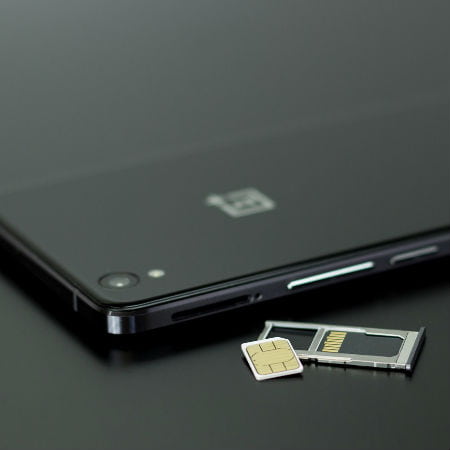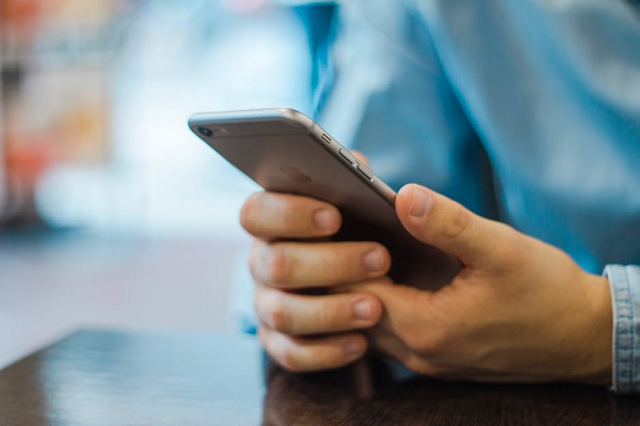
These days, our mobile phones are not just devices we can use to make calls and send simple text messages. In fact, to say that our phones are just “phones” would be grossly mislabeling them. Even the act of referring to them as “computers” is not enough. To a lot of us, a mobile phone is a networked computer, a navigational device, a data storage tool, a sound and video recorder, a clock, a mobile bank, a photo gallery, a social network hub, and so on. Considering how connected we are to our phones and how they play an important role in our day-to-day lives, it wouldn’t be an understatement to say that our mobile phones contain our entire lives in them. This makes it all the more crucial that we take measures to secure our phones, else we risk having others hack into all our personal information. The risk increases especially if you do mobile banking. This article will give you tips on mobile security and tips on how to locate lost phones.
What Is Mobile Phone Security?
At its simplest definition, it is the practice of defending your mobile phone from security threats that may range from web-based hacking to actual physical ones like phone theft. It is all about laying down countermeasures to external factors that might threaten our privacy, finances, network login credentials, and even safety.
But to protect yourself, you need to know what you’re up against. So what exactly are the sort of threats you should be looking out for?
Kinds of Mobile Security Threats
- Web-Based – There is saying that goes, “Think before you click.” This applies not only to the posts that we make on our social media accounts, but also on the different sites that we access. It is so easy to click on a seemingly innocent link and then unknowingly download malware to our phones. Be on the lookout especially for phishing attempts that will trick you into clicking what looks like legitimate sites but are actually fake ones that will only illegally capture your login credentials. You can fight against these web-based threats by installing security software on your phone that can detect phishing attempts and malicious websites. In addition, you should also be mindful of the information that you give out online. For instance, keep in mind that government agencies like the IRS will never email you to ask for your tax information. An email presenting itself as from the IRS is definitely a scam.
- App-Based – These days, hackers no longer just limit themselves to websites; they also now seek to harm through malicious apps that they create. They make these apps appealing so you are persuaded to download or install them, and once you do, these apps then steal your personal data. There are even some tap-and-pay apps that can spend your money without your knowledge or permission. To counteract this, it’s wise to regularly update your mobile device’s software so as to better equip it against apps that might exploit its vulnerabilities. It’s also a good habit to check your credit card charges and purchases regularly.
- Network – The average mobile device nowadays is typically connected to not just one network but two or three, or even four: GSM (cellular connection), WiFi, GPS, and Bluetooth. Each of these networks can be used by hackers to take over your phone and get into your accounts and personal information. The more networks you connect to, the more vulnerable your device is. To counter this, you should make it a habit to switch off networks that you are not using and to configure the security settings on your phone so as to prevent unauthorized access.
- Physical – Because of their small size and portability, mobile phones are among the easiest devices to steal. They also get easily misplaced or lost. A phone that doesn’t have adequate security and ends up lost or stolen means all your important personal and financial data are at risk at the hands of a crook. To counter physical threats to your mobile device, you should set up strong passwords to your device and customize it to automatically lock itself when it’s not in use. In addition, you should look into installing an anti-theft tracking software that can help you locate your phone when it’s gone missing. Also, sometimes crooks can take your entire bag with your phone in it, so another thing you can do is to invest in a GPS tracker that can detect the location of your bag so you can recover your possessions and your phone quickly.
Additional Tips on Making Your iPhone or Android More Secure
Android
1. Buy your device only from legit sellers who issue Android patches.
2. Do not auto-save your passwords.
3. Take advantage of two-factor authentication.
4. Keep your WiFi network secure, and exercise utmost caution when using public WiFi.
5. Back up your data.
6. Use the security app that comes with your Android device along with its built-in security features.
7. Purchase apps only from Google Play.
8. Encrypt your device.
9. Use a Virtual Private Network (VPN).
iPhone
1. Make sure your iPhone operating system, or iOS, is regularly updated.
2. Keep the “find my iPhone” feature constantly on.
3. Set a pass-code that’s a bit longer and complicated than the usual four-digit preset.
4. Make use of two-factor authentication.
5. Customize the setting of your phone to “self-destruct” mode—that is, your phone automatically wipes all the data contained in it after 10 password attempt failures.
6. Constantly change your iTunes and iCloud passwords.
7. Access secure WiFi only and steep clear of public WiFi.
8. Use only legit and reliable iPhone charging stations.
9. Disable Siri on your lock screen.
10. Revoke permissions to use your device’s camera, microphone, etc., especially for apps that seem dubious.
How Should You Locate Lost Phones?
Sometimes, despite our best efforts, the worst scenario can still happen: you’ve lost your phone. So what do you do and how do you locate lost phones?
First things first: do not panic. There are ways you can protect the information on your phone and even recover it if you keep a calm mind-set. Second, look into locating your phone. Whether your phone is an Android or an iPhone, it is sure to have phone retrieval technology that allows you to lock and wipe the data on your phone remotely. With Google’s Android, it’s Find My Device, while Apple has Find My iPhone. You can even call and send messages to your devices so you can get in touch with whoever finds it. These features, however, are good only if you’ve previously turned their settings on or if your phone’s battery is still running.
So what happens when you didn’t turn these settings on beforehand or your phone dies? Thankfully, there is a way you can connect with your phone even if such is the case. With the help of your phone’s SIM card, you can trace your phone’s whereabouts.
Locate Lost Phones with a SIM Card
A SIM card or subscriber identification module is a data storage that contains various mobile information such as contact lists and text messages. It’s your cellphone’s connection to a network. Because it’s readily available and anyone can buy a piece or as many as they want without a cellphone and without informing the network provider, thieves can easily use stolen phones by removing the old SIM card and replacing it with a new one. But did you know that you can prevent or track and locate lost phones using the SIM’s validation and encoding capability?
Scroll down for videos

Steps on How to Locate Lost Phones with SIM Number
1 . Call your phone. This way, your carrier will be able to track the last known location of your phone.
2. Get your phone’s old box. In the box, look for your phone’s international mobile equipment identity or IMEI. It’s the number unique to your mobile device given by GSM network. It’s the same number that your network provider uses to locate lost phones and prevent a thief from connecting to network.
3. Call your mobile network provider, give them your account number as well as your mobile phone number. Request for the SIM card number that is connected with your IMEI and cell phone number.
4. Request for assistance in tracking the location of your SIM card. Once the network provider detects that the original SIM card has been replaced, using the IMEI of your mobile phone, the network provider can trace the new sim card number of your lost phone.
5. If you believe that your mobile phone was stolen, contact the local police. Law enforcement can block your phone to prevent others from using your phone or sending a text message notification to the missing phone. As long as the missing phone has a SIM card on it, the message will be received.
Conclusion
A mobile phone is not just a phone. When you think about it, all aspects of our personal lives can be connected to it. This makes it all the more crucial that we take all sorts of necessary measures to keep our device and all the important information it contains secure. We hope you enjoyed this article on how to locate lost phones.
Watch the videos below